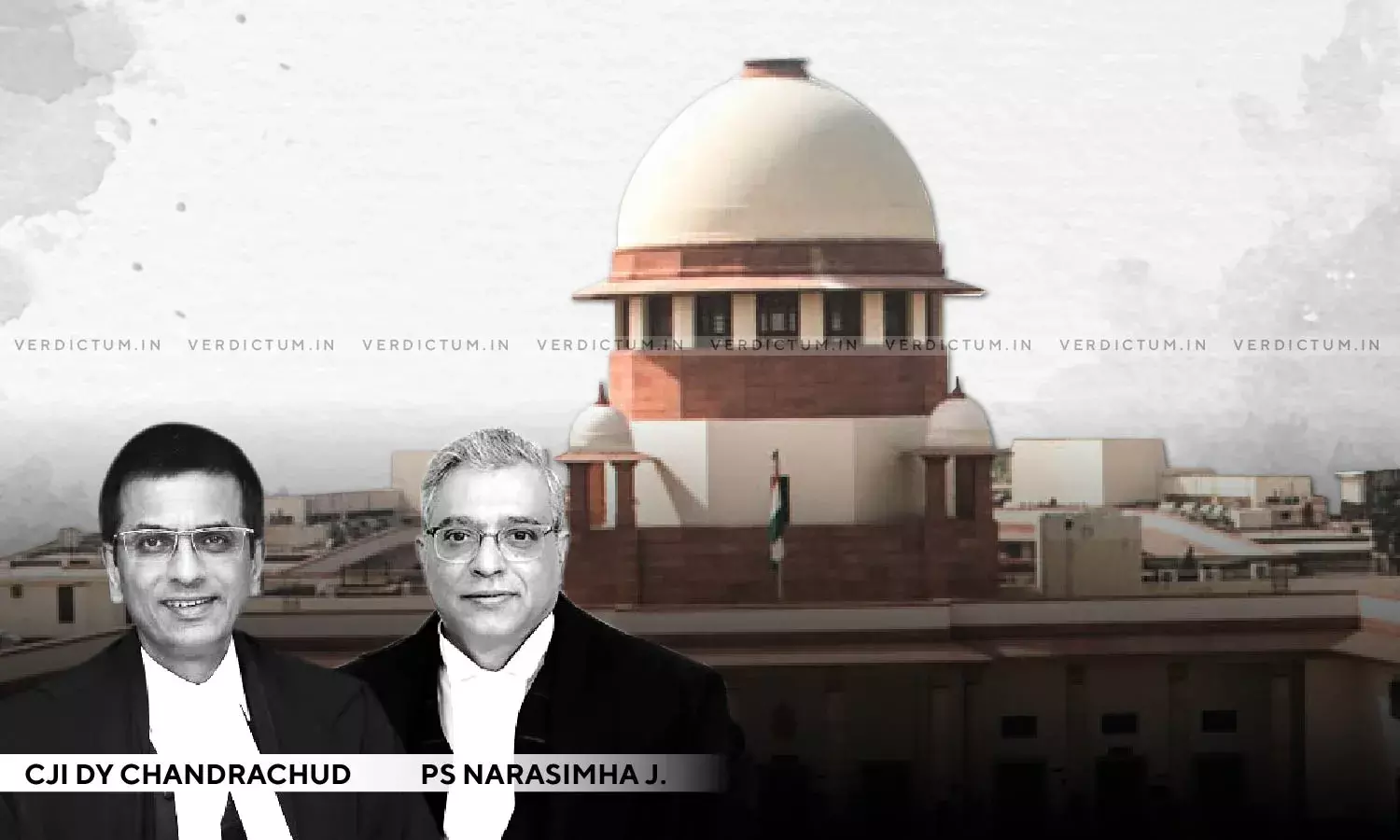S. 83(1)(c) Of Representation Of People Act| Requirement Of Form 25 Affidavit Not Mandatory If There Is Substantial Compliance: SC

The Supreme Court dismissed a Civil Appeal arising out of an election petition filed by an unsuccessful candidate for alleged violations under Sections 80, 80A, 81, 84, 100(1)(d)(iv) and 101 of the Representation of People Act, 1951 (Act). The returning candidate had approached the Apex Court against the dismissal of his application under Order 7 Rule 11 of the CPC by the High Court.
The Court emphasised that the requirement of an affidavit under Section 83(1)(c) of the Act is optional if substantial compliance exists. As the defect is curable, the person can be given the chance to furnish the necessary document, the Court noted.
The bench headed by Chief Justice DY Chandrachud and comprising Justice PS Narasimha observed, “The requirement to file an affidavit under the proviso to Section 83(1)(c) is not mandatory. It is sufficient if there is substantial compliance. As the defect is curable, an opportunity may be granted to file the necessary affidavit”.
Senior Advocate Devadatt Kamat appeared for the Appellant, and Advocate Shadan Farasat appeared for the Respondent.
Background:
The Appellant won the XII Manipur Legislative Assembly election. However, an unsuccessful candidate, Respondent No.1, filed an Election Petition against the Appellant for alleged violations under Sections 80, 80A, 81, and 84 of the Representation of People Act, 1951 (Act), as well as Sections 100(1)(d)(iv) and 101. The Appellant filed two applications to dismiss the election petition under Order 7 Rule 11 of the Civil Procedure Code (CPC) and Section 86 of the Act. Unfortunately, the High Court rejected the Appellant's applications under Order 7 Rule 11 of the CPC. The Court found that the election petitioner had provided sufficient evidence and details of the Appellant's actions and omissions, which could establish a case of corrupt practice. Additionally, the High Court ruled that the election petitioner had correctly attested the election petition and, therefore, the alleged non-compliance of Section 81(3) of the Act was incorrect. The Appellant filed a Civil Appeal before the Supreme Court seeking to dismiss the election petition.
The Court noted that the main issue to ascertain was whether the election petition was liable to be dismissed by allowing the Order 7 Rule 11 application for non-compliance with Section 83(1)(c) of the Act.
The Court observed that the High Court did not address the issue, specifically the implications of Section 83(1)(c) of the Act and its proviso. The Court noted that the High Court only referenced a previous decision on the case of Lok Prahari through its General Secretary v. Union of India & Ors [(2018) 4 SCC 699].
The Court referred to the cases G.M. Siddeshwar v. Prasanna Kumar [(2013) 4 SCC 776] and A. Manju v. Prajwal Revanna [(2022) 3 SCC 269].
The Court held that the election petition included an affidavit with a verification. The Respondent had declared under oath that the paragraphs where he made accusations of corrupt practice were true to the best of their knowledge. The Court noted that while there was no separate affidavit specifically for the allegations of corrupt practice, the requirements under Section 83(1)(c) of the Act were substantially fulfilled. The Court affirmed the High Court’s decision. The Court noted that the test laid down, regarding compliance with requirements of Section 83(1)(c), by Siddeshwar Case (Supra) was fulfilled.
“In the instant case, the election petition contained on affidavit and also a verification. In this very affidavit, the election petitioner has sworn on oath that the paragraphs where he has raised allegations of corrupt practice are true to the best of his knowledge. Though there is no separate and an independent affidavit with respect to the allegations of corrupt practice, there is substantial compliance of the requirements under Section 83(1)(c) of the Act. 16. We are in agreement with the conclusion of the High Court that there is substantial compliance of the requirements under Section 83(1)(c) of the Act and this finding satisfies the test laid down by this Court in Siddeshwar (supra). Even the subsequent decision of this Court in Revanna (supra) supports the final conclusion arrived at by the High Court”, the Bench held.
Accordingly, the Court dismissed the Appeal.
Cause Title: Thangjam Arunkumar v Yumkham Erabot Singh & Ors. (2023 INSC 762)

